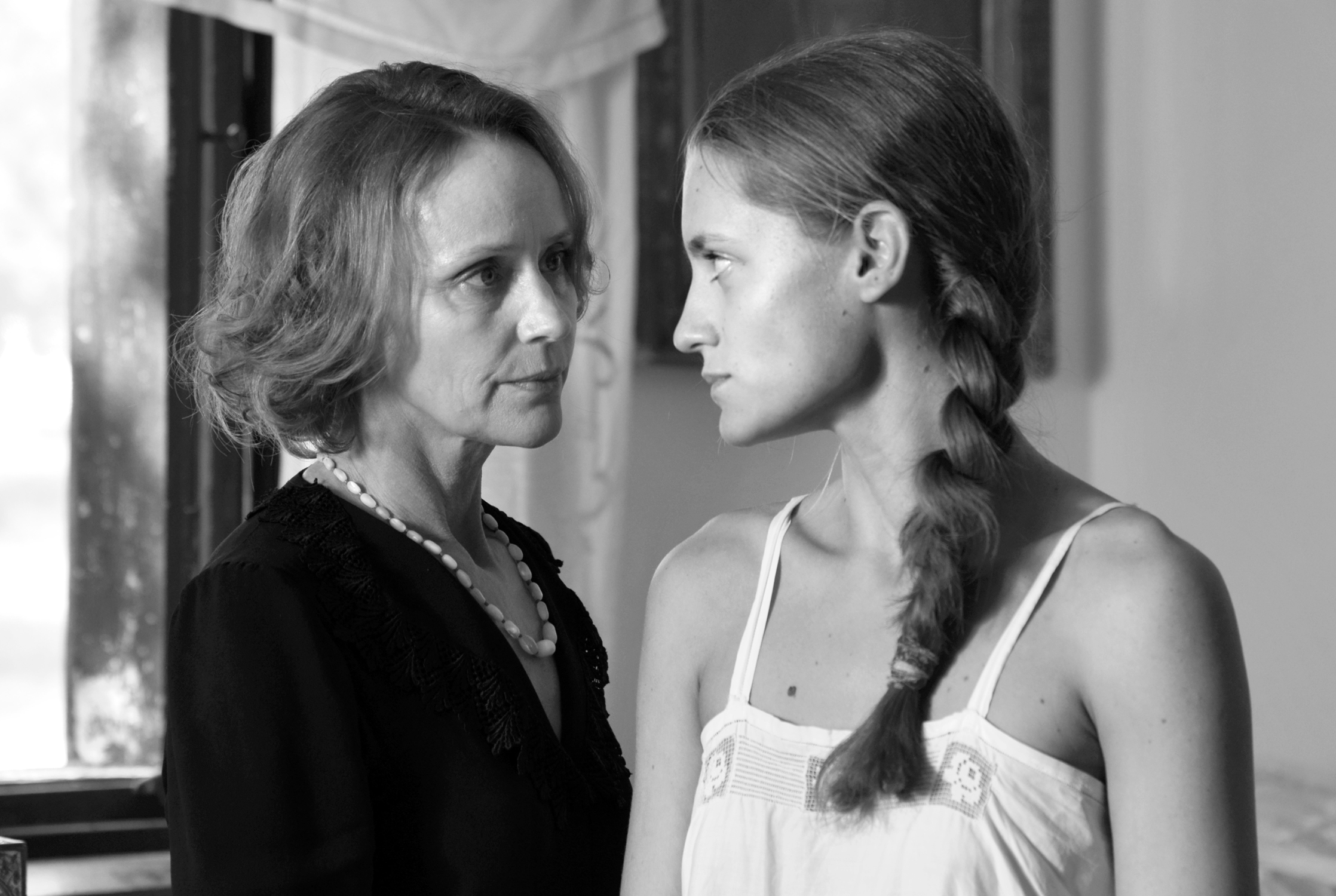Ferenc Török is firmly aiming at the festival and art house circuit with his slow-paced recreation of one summer day in rural Hungary. A steam train stops at a rural siding, two Orthodox Jewish men descend and with minimal speech, oversee the unloading of two boxes onto a horse drawn cart and start their long walk into town. The station-master sets off on his bicycle to warn the inhabitants of the imminent arrival of these strangers. It’s not long after the end of hostilities but Japan has yet to surrender. This little Hungarian town is in limbo, liberated from the Germans but not yet officially under Soviet rule. Russian soldiers circle in a jeep and are warily placated by the town clerk; the sense is of an introverted community eager to be free of outsiders of any stripe.
A big wedding celebration is about to take place (pictured below: Eszter Nagy-Kálózy confronts bride Dóra Sztarenki) so the town folk are focused on dressing the bride and groom, making a feast for the communal dining table and decorating the church. The last thing they want is the mysterious appearance of two uninvited strangers stirring up their guilty memories of the war. Are these black-suited men coming to demand revenge for the locals’ complicity when the Germans rounded up their Jewish neighbours? Or have they come to reclaim Jewish homes, businesses and property that were so eagerly appropriated? No-one knows. The strangers’ imminent arrival sets off a chain of recriminations and anxiety. Some of the townspeople want to hide their loot while some wish to atone, others are determined to hold fast to their fine new homes. There’s a determination by the older generation to keep the wedding on track, but not all is well between the betrothed couple. 
It’s hard to really engage with any of the town folk who are almost all dislikeable in either their venality or self-pity. The Jewish father and son who have caused such consternation to the locals remain sombre and dignified throughout; the filmmaker seems concerned to avoid any possibility of creating anti-Semitic portraits by making them vengeful or overtly emotional, but it's at the expense of making them full characters. Father and son remain an enigma. As nationalist fervour and racism strengthens in modern-day Hungary, it is admirable that 1945 has been made at all. Tackling the topic of some Hungarians' complicity in the Holocaust is to venture into dangerous waters, therefore it is a shame that the film's overemphasis on aesthetics means that it may not reach a wider audience.













